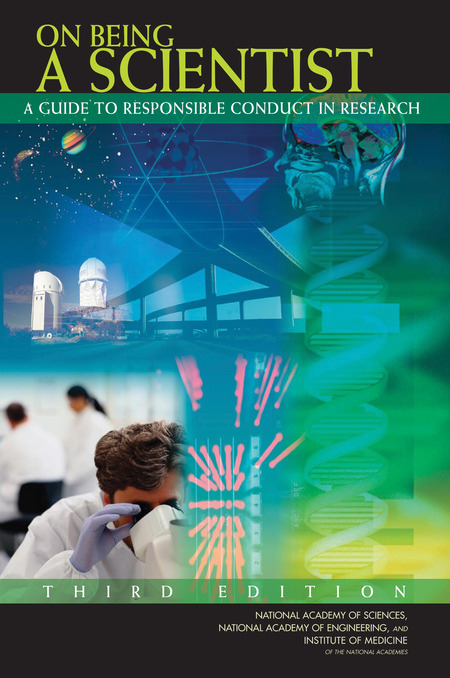Module 2: Ethics, AI Ethics, and Geoethics Frameworks
Responsible Conduct of Research
Overview
For this topic (which really could be its own full module!), we will first read about responsible conduct of research in general and then then we will dive into the growing field of responsible AI research.
Being responsible and ethical students and scientists is important to our future careers and to society as a whole. If we are not ethical and responsible researchers (in both academia and private industry), the public loses trust in science and the science itself is potentially incorrect, both of which can lead to many bad consequences. To help ensure that we minimize ethical breaches, many federal funding agencies now mandate that their grant recipients and all students paid on those grants receive training in “responsible conduct of research.”
This topic will not replicate the full course on RCR but instead introduce you to the topics and tie them together with how we can both responsibly develop AI as well as develop AI that is responsible with its actions.
Our main reading for this module will come from the book On Being a Scientist. For OU students, the book is on canvas so you don’t have to purchase it. The book is 55 pages and is a relatively fast read with a lot of vignettes. To help us absorb the materials well, we will break the reading up across the week (see assignments below).
Intelligent Search

Example of a Google search from Devon to Dale
Assignment 1
- Read pages 1-18 (this is Introduction all the way through Research Misconduct) from On Being a Scientist. I know that not all of you are graduate students so the discussion of choosing a research group may seem irrelevant but I will note that the advice applies to choosing where to work. The questions they list are valuable no matter your chosen career!
- We will discuss several of the vignettes from page 5, page 10, page 14, page 17, or page 18 in class. I’m happy to discuss all of them, it is up to the class interest in each!
- Read the Ethics Unwrapped page about the Therac-25 scandal (note, while this wasn’t AI, it was an automated programming issue that killed people!) and watch the video at the bottom about the ethics of harm.
Assignment 2
- Read pages 19-38 (this is Responding to Suspected Violations of Professional Standards through Authorship and the Allocation of Credit) from On Being a Scientist.
- We will discuss several of the vignettes from page 22, page 25, page 26, page 32, or page 36. I’m happy to discuss all of them, it is up to the class interest in each!
- Read the Ethics Unwrapped page about the Appropriating Hope. Again, while this isn’t AI, it is related to the sharing of ideas discussed in the book. Watch the video at the bottom about appropriation.
Assignment 3
- Read the rest of the On Being a Scientist book. This should be pages 39-49, which is Intellectual Property through The Researcher in Society.
- We will discuss the final Agent Orange case in class. Specifically the ending sentence is critical to what we are studying. “I used to think that one could avoid involvement inn the anti-social consequences of science simply by not working on any project that might be turned to evil or destructive ends. I have learned that things are not that simple. The only resource is for a scientist to remain involved with it to the end.” (Galston, Arthur W. Science and Social Responsibility: A Case History. Annals of the New York Academy of Science (1972): 196-223 and also from page 49 of On Being a Scientist). Discuss how this bears on our work as AI scientists (and as researchers in whatever field you are in primarily).